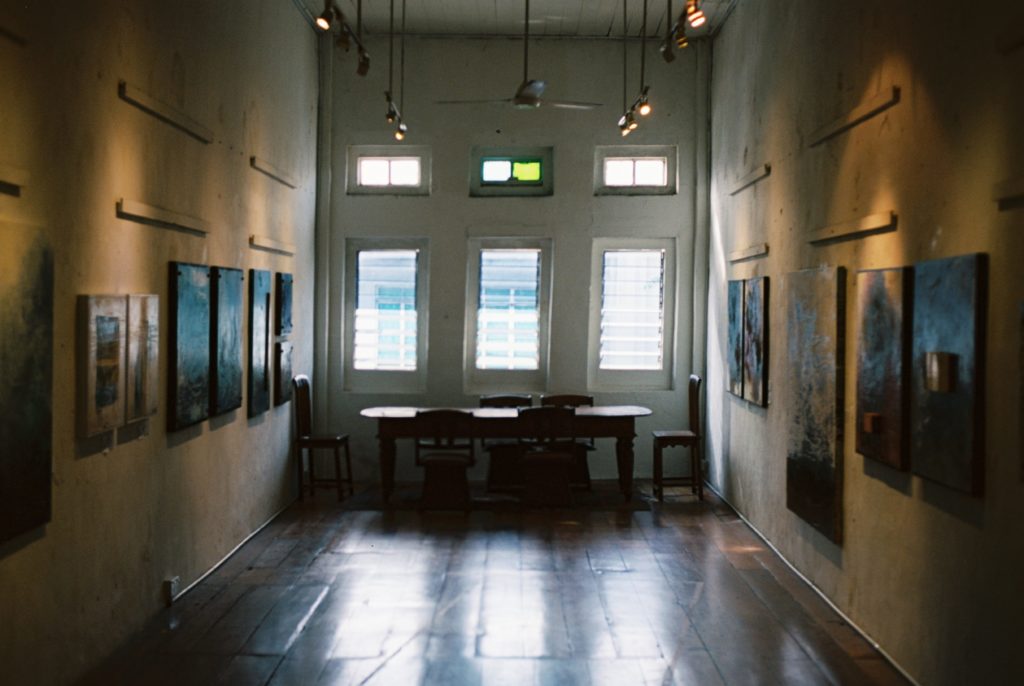‘Throughout history many nations have suffered a physical defeat, but that has never marked the end of a nation. But when a nation has become the victim of a psychological defeat, then that marks the end of a nation.’ – Ibn Khaldun
The pandemic crisis has distanced us from our humanity. In feebly attempting to save us from our physical demise, we are psychologically and socially defeated.
Defeat in distance
We are facing a pandemic. We have to stay ‘home’.
We retreat into our sleeping spaces. Some of them are homes. Some of them are shelters. Some of them we share with loved ones and some of them we share with unloved ones. Some of them we choose. Some of them we chose for locations that have lost significance. We no longer travel from our homes.
We resist and make new homes in virtual spaces that transcend geography and borders and connect us.
Geography and borders separate me from my home. I ask about the relevance of my physical space. I retreat into my safe emotional space, my emotional society, my emotional time.
We are facing a pandemic. We have to stock up.
We stock up on toilet paper, pasta and soap. Some of us distance ourselves from our selves that stock up. Some of us inundate virtual spaces with toilet paper memes and quotes about being thoughtful. Some of us muse on whether we have become a Hobbesian society, or whether Rousseau was right. Some of us decide that the we that stock up is not the we that we are. But it is who that ‘some of us’ were just before deciding this, while deciding this.
I wear a culture cloak that does not quite fit. I am confused about the cultural references. I ask why I am somewhere with a larger tendency to criticise than to understand. I retreat to my home. I take off the uncomfortable culture cloak in defeat. I no longer want an answer.
We are facing a pandemic. We must follow the suited man’s instructions.
We are instructed to do what they think is reasonable. We have different understandings of reasonable. ‘Maybe you don’t understand.’ Some of us do not understand the instruction. Another some of us instruct on the obviously reasonable. Some of us ask some of us to ‘go back where we came from.’
I grew up somewhere else. I was instructed differently there. I wonder whether I am as foreign as the virus, or more foreign than the foreign virus.
We are facing a pandemic. We walk with masks.
The masks hide our smiles. The masks muffle our words. Some of us look through cold eyes from behind the masks. Some of us look through bewildered eyes. Some of us look through suspicious eyes. We cannot kiss with our masks.
I smile under my mask. I wonder whether my eyes mirror the bewilderment and suspicion. Or whether if I know I am smiling, they will know too.
We retreat into our homes. We draw borders against our selves. We step behind the borders of our backgrounds. We hide behind our masks. We are distanced. We are defeated by the distance.
Clusters of resistance
I grew up in civil war.
I am asked whether the pandemic experience is similar to my civil war experience. My memories of the civil war are of the community cooking together, eating together and dancing together. The pandemic experience has distanced us. The distances have defeated us. Uncloaked, I wonder whether my experience is a lesson in resisting defeat. I think of how the communities of us that live in the same area, shop at the same supermarket and visit the same GP could become a cluster of resistance. This was my civil war experience.
We can create clusters of resistance.
Local childcare centre receiving all the local preschool kids. Community volunteers babysitting.
Home-schooling hub with high Internet bandwidth and safely distanced chairs. Community volunteers disinfecting multiple times a day. Community volunteers receiving and watching the kids. Masked.
Households shopping for each other. Masked.
Households cooking for each other. Masked.
Community volunteers driving the community around for the day to avoid the risks of public transport. Masked.
Community volunteers managing all the volunteer rosters.
We can resist defeat in distance.
We can stand at our ‘doorsteps.’ We can wave behind the borders. We can smile with our eyes.
We are facing a pandemic. We can warmly embrace our communities. We can draw a resistance agenda for a new beginning.

